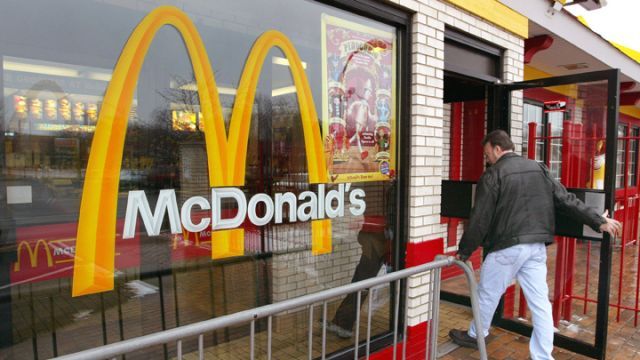
Yet again McDonald’s has claimed ownership of a prefix that has been a part of Scottish and Irish names for centuries.
A European court has upheld a 2013 ruling that the MacCoffee trademark of a Singaporean company is invalid. The ruling could make it difficult for other companies to use the Mac or Mc prefix for food or drinks.
The court felt that MacCoffee had unfairly benefited from the branding of the U.S. junk food chain. “It is highly probable that MacCoffee rides on the coat-tails of McDonald’s in order to benefit from its power of attraction, its reputation and its prestige and exploits, without paying any financial compensation,” the judgment read.
MacCoffee registered its trademark in 2010 with the European Union Intellectual Property Office, but McDonald’s applied to have the trademark made invalid on the basis that it was similar to its main EU trademark as well as 12 other trademarks that McDonald’s uses, such as McFlurry, McMuffin and so on, the BBC reported.
One point the ruling did make is that MacCoffee used the prefix “without due cause.” That is, it could be possible in the future to argue that some companies and individuals have cause to use the prefix.
But Mac, or Mc in its abbreviated form, wasn’t an idea of McDonald’s. The company was named after its founders — brothers Dick and Mac McDonald — and both the surname and prefix are very common among the Irish, Scottish and their descendants. In the case of MacCoffee, the packaging and logo doesn’t even resemble McDonald’s.
This isn’t the first time the chain store has been possessive over the use of its prefix. In 1996 McDonald’s threatened the owner of a sandwich bar in the UK called McMunchies with legal action. Owner Mary Blair wasn’t selling burgers and french fries, though. She said she chose the name because she liked the word “munchies” and wanted her cafe to have a Scottish vibe.
The signage reflected this, featuring a Scottish thistle and a St. Andrew’s flag. But McDonald’s claimed, in a statement to Blair’s lawyers, that if someone used the Mac prefix they were using something that didn’t belong to them, even though the surnames date back well before the restaurant chain was established.
Worse, the company waged a 32-year lawsuit against a McDonald’s Family Restaurant, opened by a man legally named Ronald McDonald in Fairbury, Ill. in 1956. McDonald’s lost the lawsuit and the man continued to run his restaurant, despite ongoing objections from the chain store.
Then in 2005, McDonald’s tried to stop an Australian lawyer, Malcolm McBratney, from using the name ‘McBrat’ on the shorts of the Brisbane Irish Rugby team in the state of Queensland. McDonald’s claimed the McBrat name was too similar to its McKids trademark, as “brat” can be a term for children.
Common phrases businesses and individuals claim to own
Various other companies and individuals have tried to claim they own common elements of language as well.
Donald Trump tried to trademark the phrase “You’re fired” in 2004. After using the phrase in his show “The Apprentice,” Trump wanted to put it on games, casino services and clothing.
In 2007, KFC tried to sue a pub owner for using the phrase “family feast” for a Christmas Day menu. The owner of the small pub was shocked by the claim, saying, “It beggars belief; I am dumbfounded. They are a multi-million pound, international organization and I am a little lady up a mountain.”
She explained that her “family feast” didn’t resemble the KFC package of fried chicken and french fries. “It’s a traditional Christmas dinner: pate, turkey, road beef and the trimmings, Christmas pudding,” she said.
Then in 2010 Facebook trademarked the word “face.” The outcome of the measure is that no one else can use “face” as a word or prefix for their products in the social media world.
Monster Cable wins the prize for the most amount of brand lawsuits. It has sued companies for using the word “monster,” including Monster Mini Golf franchise, Monster Transmissions (a family company that sells transmissions for cars and trucks), the Disney movie “Monsters Inc.,” and the Monster Energy drink.
While it’s understandable that companies want to be the only ones to benefit from their brand marketing, what many of them fail to realize is that association with their company is not always a positive thing.
More than that, is it really possible to own common elements and phrases of language? While the registration of a creatively designed logo, or any creative work, may make sense, is it reasonable that companies and individuals can control the use of words that everyone else has used for centuries?
–Tamara Pearson

